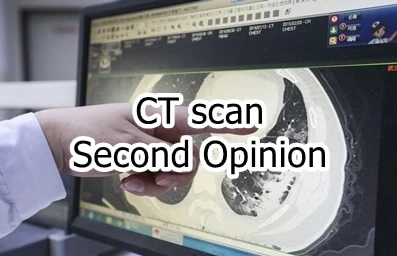In the realm of medical diagnostics, CT scans play a pivotal role in providing detailed insights into a patient\'s health. However, the interpretation of these scans can sometimes be complex, leading to the potential for misdiagnosis or incomplete understanding of a patient\'s condition. In such cases, seeking a CT second opinion becomes not just a choice but a crucial step towards ensuring accurate diagnosis and informed decision-making.
The Complexity of CT Scan Interpretation: CT scans are powerful imaging tools that offer a detailed view of internal structures, aiding in the diagnosis of various medical conditions. However, the intricate nature of these images can pose challenges in interpretation. Radiologists, while highly skilled, may encounter difficulties in identifying subtle abnormalities or distinguishing between benign and malignant findings.
Reducing the Risk of Misdiagnosis: A misdiagnosis based on a single interpretation of a CT scan can have profound consequences for a patient. It can lead to unnecessary treatments, delays in addressing actual health issues, or even emotional distress. Seeking a second opinion acts as a safeguard against such risks, providing patients with a broader perspective on their medical condition.
Enhanced Accuracy and Confidence: A second opinion in CT scan interpretation involves consulting another experienced radiologist or medical professional. This collaborative approach often results in a more accurate diagnosis as it brings diverse perspectives to the table. Patients can gain confidence in their diagnosis and treatment plan, knowing that multiple experts have reviewed their case.
Informed Decision-Making: Knowledge is empowering, especially when it comes to healthcare decisions. A second opinion allows patients to make informed choices about their treatment options. It may confirm the initial diagnosis, provide alternative perspectives, or suggest additional tests, ultimately giving patients a more comprehensive understanding of their health.
Access to Specialized Expertise: Some medical conditions require highly specialized knowledge for accurate interpretation. Seeking a second opinion enables patients to tap into a network of experts who may have specific experience in the particular area of concern. This can be especially valuable in rare or complex cases.
Facilitating Open Communication: Encouraging patients to seek a second opinion fosters open communication between healthcare providers and patients. It is not a sign of mistrust but rather a proactive step towards ensuring the highest standard of care. Healthcare professionals should support and guide patients in their pursuit of a second opinion, emphasizing the collaborative nature of modern healthcare.
Conclusion:
In the rapidly advancing field of medical imaging, the importance of a second opinion cannot be overstated, particularly in the context of CT scans. Patients are entitled to the highest quality of care and accuracy in their diagnoses. Seeking a second opinion not only serves as a valuable check against potential errors but also empowers patients to actively participate in their healthcare journey. By promoting a culture of collaboration and open communication, we can ensure that every individual receives the best possible care and achieves the best possible health outcomes.



